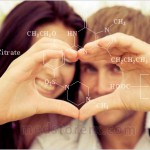Impotence is a consistent failure to maintain an erectile adequate for lovemaking. Impotence can be a total failure to accomplish erectile, an unreliable ability to do so, or a tendency to maintain only brief hard on. Occurrence increases with age: about 5 % of men at the age of 40 and between 20 and 35 % of men at the age of 65 experience erectile issues. Yet, it is not an unavoidable part of aging.
Medical professionals often use the term ‘erectile dysfunction’ to explain erectile issues. Impotence and impotence should be recognized from other conditions that intervene with lovemaking, such as lack of libido and issues with ejaculation and orgasm.
Damage to bloodstream, sleek muscular tissue, and nerve fibers of the male organ can cause to erectile issues. One typical cause of erectile issues is circulation system and nerve harm due to diabetes. Other causes of erectile issues consist of low androgenic hormone or testosterone levels, renal condition, serious alcohol addiction, ms (a condition of the nervous system), coronary artery disease (leading to circulation system hardening), surgical harm to nerve fibers and bloodstream (for example, prostate surgery), and injury to the male organ, kidney, hips and the vertebrae.
Some typical medicines produce erectile issues as a complication. These consist of certain hypertension medicines, antihistamines, anti-depressants, tranquilizers, diet pills, and an ulcer pill. Also habits like smoking impacts system circulation in veins and bloodstream, and is also believed to cause to erectile issues.
Psychological factors such as stress, anxiety, shame, depression, low self-esteem, and fear of sex-related failure are associated with erectile issues. If the underlying condition resulting in erectile issues cannot be repaired, or if erectile issues problems continue to persist, medications can help certain men accomplish erectile adequate for sexual related Sexual activity as well as maintain erectile after transmission.
The male organ contains two segments, called the corpora cavernous, which run the length of the organ. Erection begins with neurological and mental pleasure. Urges from the brain and local nerve fibers cause the muscular tissue of the corpora cavernous to rest, allowing system to circulation in and fill the pockets. The influx of system creates stress in the corpora cavernous pockets, making the male organ increase.
The element cGMP, a signaling compound within cells, tells the sleek muscular in the corpora cavernous to rest and this lets system circulation into the pockets and be stuck for an erectile. The erectile is lost when cGMP is changed by compound (PDE5), lowering the level of cGMP, so the muscular of the corpus cavernous agreements again, the system moves out of the pockets of the corpus cavernous and the erectile is no more.
Generic Viagra is a generic agent recently accepted by the United States, FDA for the therapy of impotence. Its major mode of action is self-consciousness of the compound PDE5. Conquering this compound allows the cyclic GMP to stay around long, thus sustaining erectile. Hence, this pill is not an sexual enhancer; it is not effectual without sexual related pleasure. It mainly increases the normal physiologic erectile.


 Cart : 0 items - $0.00
Cart : 0 items - $0.00










